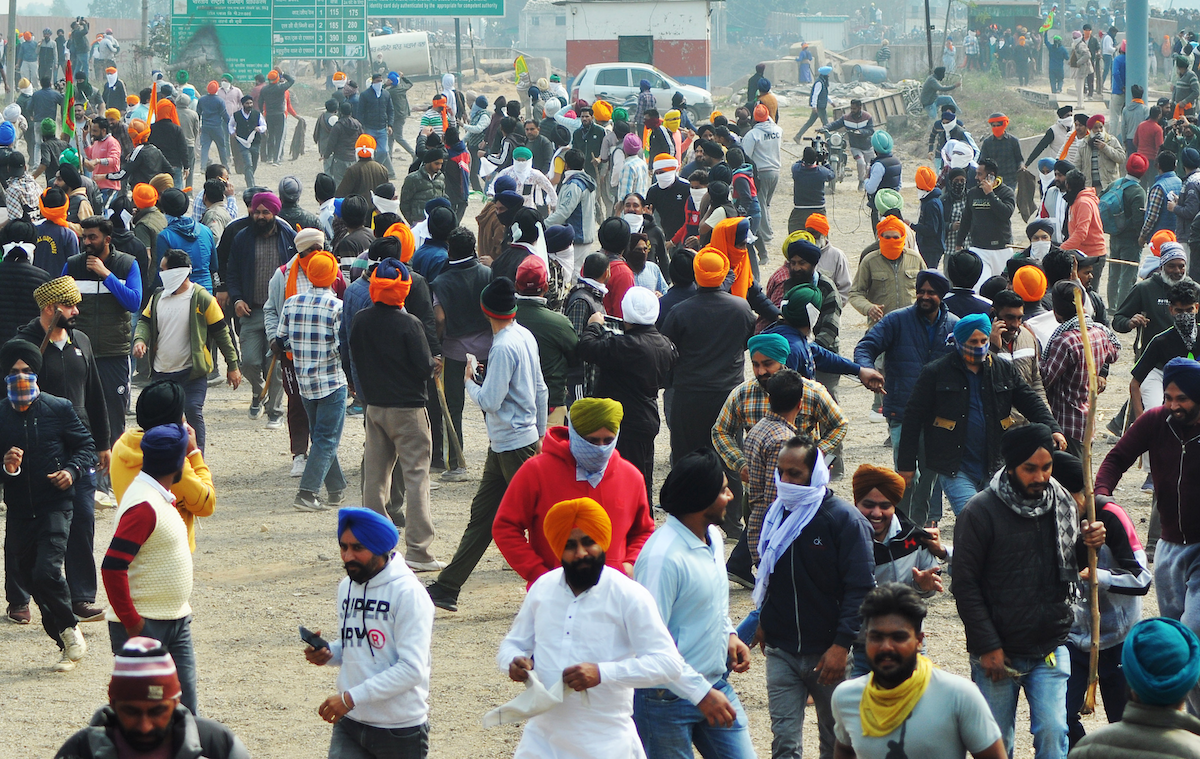Thousands of farmers are marching toward New Delhi to demand better prices for their crops, but police are trying to keep them out of the capital by barricading access to the city, firing tear gas, and making arrests.
The unrest comes just months before the general election in which Prime Minister Narendra Modi is predicted to win a third term.
A repeat of 2021? Amid the deadly surge of COVID-19 in 2020, farmers camped out for over a year, demanding that the government revoke new agricultural laws aimed at modernizing the farming industry. The protests, which gained international attention (and a tweet from Rihanna), ended after the government agreed to repeal them.
But farmers from Haryana and Punjab say the demands — including minimum support prices, doubling income, and loan waivers — have yet to be met two years on. Over 200 participating farmer unions announced a rural strike for Friday, during which no agricultural activities will occur.
High stakes. The Modi administration has faced limited challenges to appease the majority of voters. But the farming bloc (approximately 60% of the population works in agriculture), which contributes 18% to the country’s GDP and to which Modi yielded last time, may command more of his attention.
